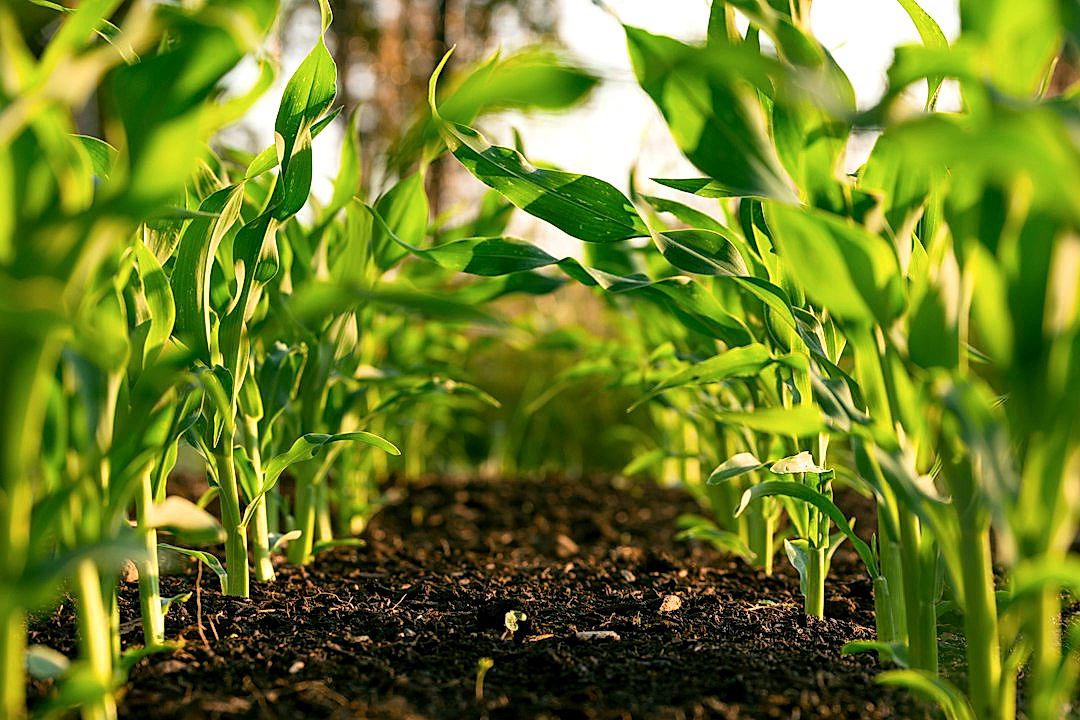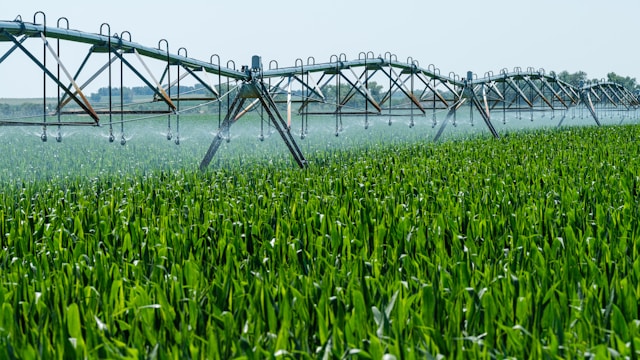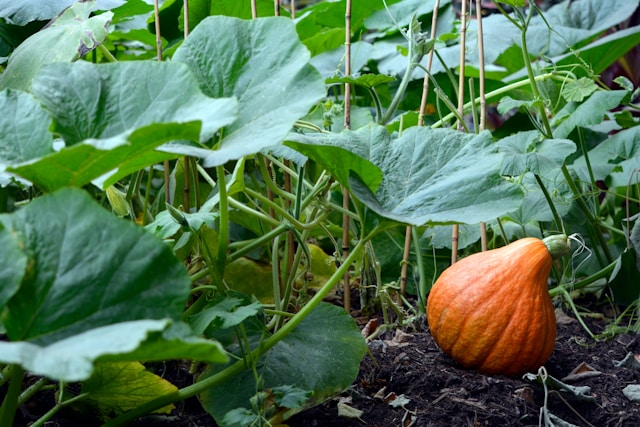In recent years, a critical shift towards sustainable agriculture has sparked global discussions on organic crop production.
The increasing consumer demand for organic produce, due to its perceived health and environmental benefits, further adds to this dialogue.
However, transitioning to this form of agriculture involves considerable challenges and financial implications for the farmer.
One mechanism to counterbalance these hurdles is through government subsidies.
This article critically examines how such fiscal policies can potentially facilitate, or hinder, organic farming.
It probes into the overall effect of these subsidies on various aspects encompassing the environmental, economic, and social domains of organic crop production.
Contents
Impacts Of Subsidies On Organic Crop Production
1. Reduces Production Cost for Organic Farmers
The field of organic farming is seen as a niche market that yields numerous health and environmental benefits. However, it is often considered relatively expensive compared to conventional farming.
This is a result of factors such as the intensive labour required, and the increased amounts of time taken to grow organic produce.
Thus, it is a common fact that organic farming generally incurs higher production costs compared to traditional farming methods.
One of the strategies to reduce the financial burden on organic farmers and encouraging the mass production of organic crops is through the implementation of subsidies.
The effect of subsidies on organic farming can be substantive as it can directly impact the operational costs of organic farming.
Therefore, one significant advantage of subsidies is that they assist in reducing production costs associated with organic farming.
Subsidies can help cover the cost of obtaining organic certification, purchasing necessary organic farming equipment, and managing soil fertility using organic methods.
In this scenario, they function as a kind of financial cushion that can mitigate many of the costs associated with organic farming.
These financial incentives encourage more farmers to adopt organic farming methods, thereby contributing towards a greater supply of organic crops in the market.
Additionally, subsidies can also help in areas like converting conventional farmland to certified organic farmland which could otherwise be a cost-prohibitive process for many farmers.
Subsidies could indeed reduce costs associated with crop rotation patterns commonly used in organic farming and the overall handling and processing of organic crops.
The application of subsidies in these areas can, therefore, generate a ripple effect, reducing the overall costs associated with organic farming substantially.
This makes organic farming a viable and sustainable choice for many farmers, promoting a bigger and healthier organic market.
Furthermore, these subsidies can also inherently help tackle the issue of food insecurity in various regions by the increase in production of organic crops.
Thus, subsidies indeed form a significant link to not only reducing the production cost for organic farmers but also promoting a sustainable and resilient food system.
It is, therefore, vital to promote the advantages of these subsidies further to encourage a greater number of farmers to transition towards organic farming.
2. Increases availability of organic produce.
When discussing the impacts of subsidies on organic crop production, one crucial factor to consider is the increased availability of organic produce in the market.
This is a direct consequence of the financial support that organic farmers receive from the government, which allows them to produce more and meet the growing demand for organic food.
It is well known that organic farming practices are more labor-intensive and often yield smaller crops compared to conventional farming.
Without sufficient financial support, organic farmers may struggle to maintain their operations and meet consumer demand.
However, the introduction of subsidies has proven to be a game-changer.
With subsidies aiding to offset some of the cost burdens associated with organic farming, farmers have been enabled to increase their production thus effectively leading to a more accessible and diverse supply of organic produce in markets nationwide.
It’s also worth noting how the increase in organic production could influence consumer behavior.
The more readily available organic produce becomes, the more likely consumers are to incorporate such products into their diets.
This will not only have positive impacts on public health but also create a stronger demand for organic produce, encouraging more farmers to switch to organic farming methods.
It’s a positive cycle where increased consumer demand leads to increased production, which again boosts consumption, making organic products more mainstream.
Apart from benefiting consumers, local economies can also benefit from the increase in organic crop production.
This is especially true in rural areas where farming is the backbone of the economy.
An increase in organic farming, fueled by subsidies, often translates into more job opportunities and increased income for people in these areas.
In essence, the availability of organic produce is not solely about food; it impacts a wide range of social, economic, and environmental issues.
Therefore, subsidies playing a key role in enhancing organic production cannot be undermined.
3. Enhances organic farming research advancements.
Subsidies in organic farming contribute greatly to the enhancement and evolution of organic farming research advancements.
The allocation of resources towards organic farming research is often spurred by the presence of subsidies.
This is because subsidies make organic farming more financially viable, and therefore, more attractive for researchers and scientists to explore further.
Moreover, the increased prevalence of organic farming as a result of subsidies can lead to more diversified research scopes.
For instance, with greater numbers of organic farmers, more research can be done on various types of organic crops and farming methods.
This deeper exploration makes way for innovative practices and cutting-edge breakthroughs in the organic farming field.
Further, research in organic farming is essential for discovering new techniques and tools that can help organic farmers be more efficient and environmentally friendly.
Subsidies help to fund this critical research, leading to new information that can empower farmers and lead to a more sustainable agriculture industry.
It also contributes to the development of better techniques for pest management, soil conservation, and crop rotation which are all crucial aspects of organic farming.
Therefore, the subsidies not only benefit the researchers but also the organic farmers who can then apply these new methods and technologies in their farms.
It’s essential to note that these technological advancements also help in overcoming the challenges and limitations that organic farming faces.
These challenges include production inefficiency, less crop yield, and the lack of technology suitable for organic farming.
With more in-depth research, it becomes possible to find solution-oriented methods to solve these agricultural issues.
Another major advantage of subsidies geared towards research is the creation of a ripple effect in other sectors related to organic farming.
The discoveries from these researches often spark advancements in other agricultural sectors, such as organic livestock farming and organic produce processing industries.
Thus, the subsidies that support organic farming research advancements do more than just improve the organic farming sector.
They are a catalyst for innovation across the wider agricultural industry, enabling the creation of new technologies and practices which can lead to a more sustainable and holistic future for agriculture.
The Bottom Line
Therefore, it is evident that the benefits of implementing new measures in the organic farming industry are multifaceted.
By reducing production costs, farmers can focus on improving the quality and quantity of their produce.
This, in turn, leads to an increase in the availability of organic produce, therefore making it a more viable and accessible food source for the wider population.
Moreover, these implementations facilitate progress in research related to organic farming.
This promotes growth and innovation in the field, advancing the organic farming industry as a whole.
This holistic approach not only bolsters the growth of individual farmers but also significantly contributes to a more sustainable and healthier food system.




